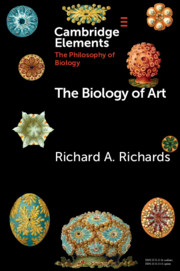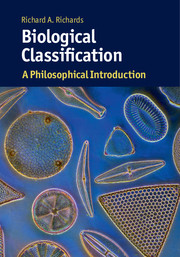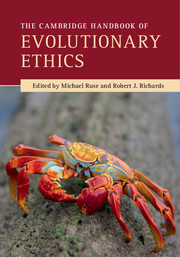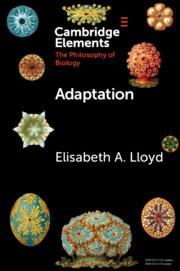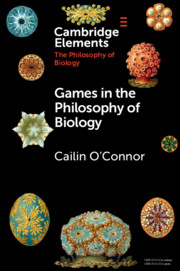The Biology of Art
$22.00 USD
Part of Elements in the Philosophy of Biology
- Author: Richard A. Richards, University of Alabama
- Date Published: June 2019
- availability: This ISBN is for an eBook version which is distributed on our behalf by a third party.
- format: Adobe eBook Reader
- isbn: 9781108576840
Find out more about Cambridge eBooks
$
22.00 USD
Adobe eBook Reader
Other available formats:
Paperback
Looking for an inspection copy?
This title is not currently available on inspection
-
Biological accounts of art typically start with evolutionary, psychological or neurobiological theories. These approaches might be able to explain many of the similarities we see in art behaviors within and across human populations, but they don't obviously explain the differences we also see. Nor do they give us guidance on how we should engage with art, or the conceptual basis for art. A more comprehensive framework, based also on the ecology of art and how art behaviors get expressed in engineered niches, can help us better understand the full range of art behaviors, their normativity and conceptual basis.
Reviews & endorsements
'Like Biological Classification before it, I find The Biology of Art definitive; it is fundamental, original, and written with superb clarity. This is the work to go to for a source and basic review of importance in consilience and the creative arts generally.' Edward O. Wilson, Harvard University
See more reviews'This seventy-one page book by Richard A. Richards is in Cambridge's Elements in the Philosophy of Biology series, which provides 'concise and structured introductions to all of the central topics in the philosophy of biology'. It meets these conditions admirably. As well, it is clearly written and highly accessible, avoiding jargon and explaining technical terms where required. It judiciously evaluates arguments and positions for their merits and faults. It can be read usefully by those whose interest is more in art than biology, including undergraduates.' British Journal of Aesthetics
'I found it highly readable and engaging. No knowledge of philosophy of art is presumed. It provides a balanced introduction, and a clear articulation of the author's view. I would not hesitate to recommend The Biology of Art to a newcomer to philosophical aesthetics or to set it as a reading in an undergraduate philosophy of art course. Indeed, I think it would serve class discussions well … The book is a curious contribution to a Philosophy of Biology series. Many central controversies in philosophy of biology can be brought to bear on the arts. This element sidesteps those to offer instead a defence of naturalism in philosophy of art-a position I would wager most professional philosophers of biology would already endorse.' Anton Killin, Metascience
Customer reviews
Not yet reviewed
Be the first to review
Review was not posted due to profanity
×Product details
- Date Published: June 2019
- format: Adobe eBook Reader
- isbn: 9781108576840
- availability: This ISBN is for an eBook version which is distributed on our behalf by a third party.
Table of Contents
1. What is art?
2. Naturalism and its discontents
3. The evolutionary framework
4. The psychology and neurobiology of art
5. The ecology of art
6. Conclusion.
Sorry, this resource is locked
Please register or sign in to request access. If you are having problems accessing these resources please email [email protected]
Register Sign in» Proceed
You are now leaving the Cambridge University Press website. Your eBook purchase and download will be completed by our partner www.ebooks.com. Please see the permission section of the www.ebooks.com catalogue page for details of the print & copy limits on our eBooks.
Continue ×Are you sure you want to delete your account?
This cannot be undone.
Thank you for your feedback which will help us improve our service.
If you requested a response, we will make sure to get back to you shortly.
×
